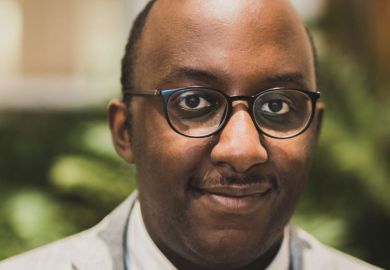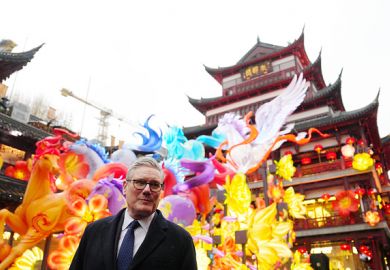Asian university and business leaders have called for a more holistic look at the challenges higher education and society will face in the longer term, in the wake of the pandemic, as well as tipping a strengthening of the continent’s sector.
Speakers at the Virtual THE Live Asia 2020 event urged institutions to adopt a more human-centred approach, whether in helping disadvantaged students bridge the digital divide or in lending support to humanities fields that help communities make sense of a highly disruptive time.
Many leaders also reported seeing stronger ties across Asia, a region that generally performed well in containing Covid-19 after the first few months of the outbreak.
Subra Suresh, president of Nanyang Technological University, Singapore, said more Asian students were staying closer to home, as the region’s universities have improved in international rankings and as political issues such as Brexit or “geopolitical changes in the United States” act as a deterrent. “Covid will accelerate that trend”, he said, adding that “scientific gravitas is also shifting”.
YS Chi, chairman of Elsevier, urged Asian higher education institutions to be more “united, collaborative and resilient”.
Professor Suresh also said that despite his institution’s quick shift to digital learning, there was still real value in authentic, in-person communication. An online class is “different than having a young person talking directly to an inspiring speaker – we don’t want to give that up”, he said.
Medical education, in particular, had to consider both the scientific and human sides of the field, he argued.
Fanny Cheung, pro vice-chancellor of the Chinese University of Hong Kong, said her institution had brought together STEM and non-STEM professors for Covid-19 research.
The communications field, for example, was important for helping the public separate “facts from myths” about the disease. Psychologists and sociologists could study the mental health repercussions of the epidemic, as well as why different communities reacted with different public health behaviours, Professor Cheung said.
Academics from a wide range of disciplines were needed to help battle the prejudice, economic fallout and geopolitical tensions that have been triggered by Covid-19 – and “without assuming the mainstream or Western model”, Professor Cheung added.
Digitisation should be seen as a tool to improve – not replace – interdisciplinary and interactive teaching, she argued.
Anthony Salcito, vice-president of worldwide education at Microsoft, explained that the initial shift to online learning precipitated by the Covid-19 pandemic involved moving pre-existing materials to digital platforms. However, as universities continue to digitise “we have to get smarter and offer more personalised learning”, he added.
“For years, teachers have been worried about being replaced by robots,” he said. “But, if anything, the role of teachers has become more highly respected.”
Qiu Yong, Tsinghua University’s president, said that only 15 per cent of instructors at his institution had taught online before Covid-19, and that it was “inspiring” to see so many faculty members make the switch.
“Screens are not barriers for interactions, but new bridges between faculty and students,” he said.
Chandrika Wijeyaratne, vice-chancellor of the University of Colombo, spoke from the vantage point of heading a public university in a less privileged nation, and called for a “more holistic response” to the pandemic.
In Sri Lanka, many students had only a smartphone for online learning. So in the immediate term, institutions had to help provide basics such as hardware and connectivity. But, ultimately, Professor Wijeyaratne hoped that digitisation would allow universities to “increase the number of students who benefited” from higher education beyond those who could physically attend a traditional campus.
Professor Suresh of NTU in Singapore said that expensive, high-tech tools – once limited to wealthy institutions – could potentially be shared in new ways. As an example, he mentioned an electron microscope, which could cost hundreds of thousands of dollars. “Many countries don’t have that,” he said. “But if you could view or control that microscope remotely, you could use it from anywhere in the world.”
Register to continue
Why register?
- Registration is free and only takes a moment
- Once registered, you can read 3 articles a month
- Sign up for our newsletter
Subscribe
Or subscribe for unlimited access to:
- Unlimited access to news, views, insights & reviews
- Digital editions
- Digital access to THE’s university and college rankings analysis
Already registered or a current subscriber?











